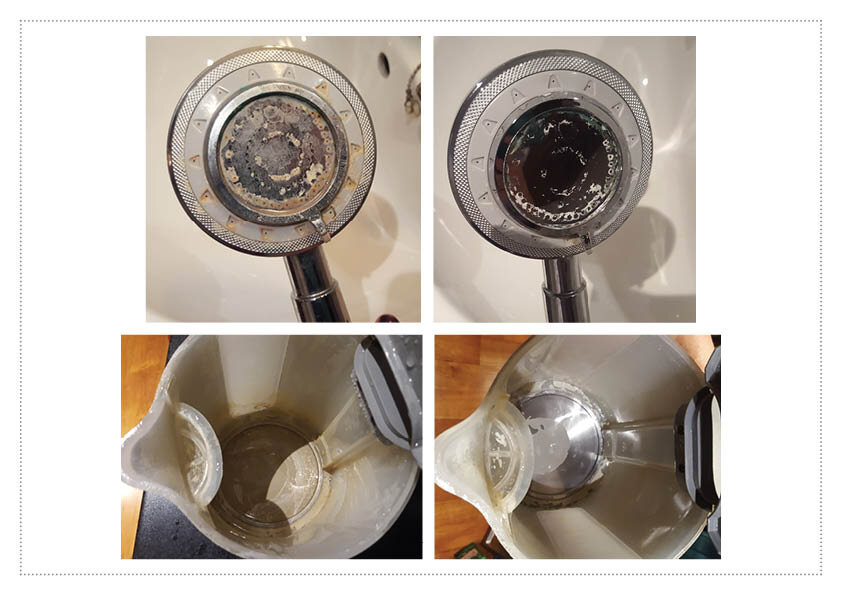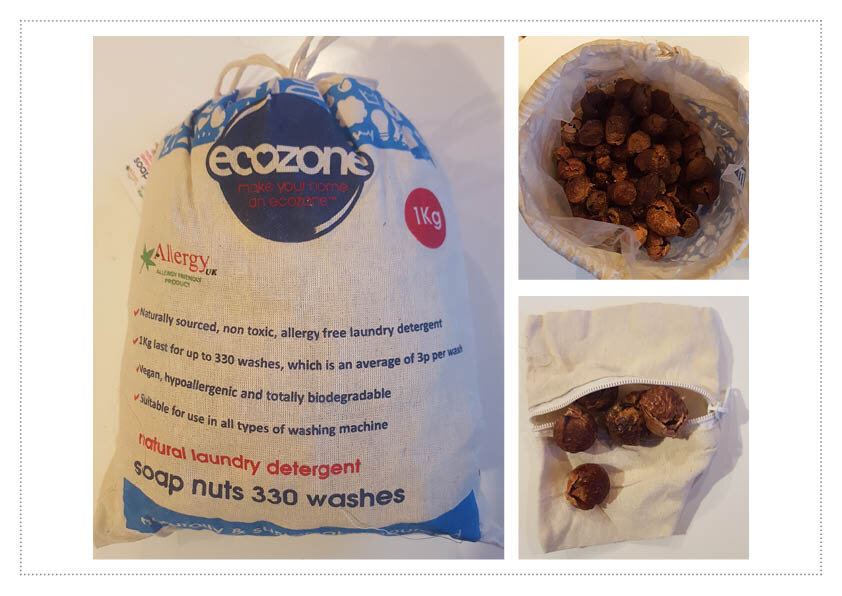Eco Friendly Cleaning Products Review
This month I have been testing out some household cleaning products which attempt to tackle some of the following problems:
too much plastic packaging
over-spending on multiple specialist products
cluttered cleaning cupboards
harmful substances affecting our health in the home and being released into our water system
I have referenced several online resources which I will link below. As part of this research I have identified the following simple and cheap products which you can use to make all of your household cleaners. These are:
Acids
These will disinfect and cut through grease and oil.
White Vinegar (also known as distilled vinegar. Not generally used in cooking due to its strong taste, it contains acetic acid which kills bacteria and dissolves limescale)
Lemon juice (another natural acid which can be used to dissolve tough grime)
Alkalis
Bicarbonate of soda is a mild alkali, and a great de-odouriser. The powder is also abrasive which can be useful for scouring.
Borax (also known as sodium borate. I actually used a borax substitute, sodium sesquicarbonate, as I found actual borax was not widely available in the UK.) Borax is an anti-fungal, stain removing, and odour removing. It is a stronger product than bicarbonate of soda.
Soda crystals (also known as sodium carbonate, or washing soda) it is found in laundry detergents and other cleaners and softens water so that a soap lather can form more easily. It is a stronger product than bicarbonate of soda and Borax.
Others
Castile Soap (An olive oil based soap.) I was put off purchasing the recommended 'Dr Bronner's as it contains palm oil, so instead bought a coconut oil based product.
Disinfectant essential oils (examples include: tea tree, eucalyptus, lemongrass, clove)
I found all of these products on Ethical Superstore for quite reasonable prices. The website allows you to search using several different categories which you might expect, but also using “Product Ethics & Tags” which allows you to browse all products which are vegan, fairtrade, locally produced… etc.
The parcel also came with no plastic packaging which I was pleased about.
By combining these ingredients in different quantities and ratios with water, I have been able to clean all areas of my home this month and have mostly been very impressed with the results!
Please be aware that certain surfaces will be damaged by the use of acids (natural stone, raw wood) so take care if you have these materials in your home.
Even though these products are all considered safe for use in the home please take care when using any new cleaning products, if you have any kind of reaction rinse your skin with plenty of water and if it persists please consult a doctor.
The first products I tested were the oil based soap bar and natural washing up pad. The pad arrived in a hard, flat slab and I was sceptical as to how effective it would be, but as soon as I ran it under the water it puffed up to become the recognisable loofah. For a long time I thought that loofahs (or luffas) were sea creatures, like a natural sponge, and only learned in recent years that they are actually a plant, which makes me much more comfortable about using them. They are basically a naturally occurring, vegan, biodegradable sponge.
The soap bar appealed to me because of the lack of plastic. I didn’t expect it to produce a foam but it actually did on the sponge (although not in the water).
By lathering the soap onto the sponge and then scrubbing my dishes as normal before rinsing in the water i was able to clean everything pretty well, however I have to say I found the soap left a bit of a residue on everything even after rinsing, and the water in the sink ended up with a greasy film floating on it. For this reason I would absolutely recommend the sponge: I tried again using my standard washing up liquid and the loofah and it worked great, but unfortunately I wouldn’t recommend the soap.
Another great thing about the sponge was that because of the “loose” structure, it doesn’t hold too much water meaning it dries out nice and quickly which I hope will help to extend its useful life.
The sponge cost £2.75 and the soap was £11 which is certainly a lot more than I would pay for standard washing up materials. Unfortunately this is often the case when choosing environmentally friendly products, and sadly there is no real solution to this as quality materials and fair supply chains do just cost more. My hope is that the sponge will last a long time to make up for the extra cost. Unfortunately on this occasion I feel I have wasted my money on the soap, but that’s why I’m testing things out so that we can all learn!
The next product I tested was lemon juice. It seems funny calling lemon juice a product as I literally just bought a lemon! (25p from Sainsbury’s) Lemon juice contains citric acidic which makes it great for removing limescale.
I cut the lemon in half and rubbed one half on the shower head, leaving the juice to sit on the surface for about half an hour. After this I sprinkled on some bicarbonate of soda and scrubbed with an old toothbrush, the fizzing reaction was fun! (Remember that as soon as you add an alkali to an acid they will neutralise each other, so in this instance I was only using the bicarb for its abrasive qualities.)
I placed the other half of the lemon into the kettle, about 3/4 full of water, and let it boil.
I was really impressed with these methods, especially the kettle. I felt comfortable using the lemon as I know its edible and safe, so after a couple of rinses with fresh water I felt happy to make a cup of tea in my lovely clean kettle!
You can also buy powdered citric acid if you prefer something which you can keep in the cupboard and wont go off. (This is also useful because you can make a paste)
Next up I tackled the tile grout in the bathroom. For this I wanted to test out using white vinegar for its acidic properties so I filled an empty spray bottle and sprayed vinegar all over the area I wanted to clean. Next i dabbed my trusty old toothbrush into the bicarb and scrubbed the grout.
This worked so well and I was really impressed. I could see the vinegar starting to eat away at the grime and then the abrasive baking powder fizzed and scrubbed it off really nicely. I rinsed the whole area with a clean damp cloth.
Other Applications:
I made a surface cleaner spray using half water and half distilled vinegar with a few drops of tea tree oil. It worked very well at removing sticky patches from the work surface and stovetop. There is no way to be able to test whether it is killing bacteria as well as my previous cleaning spray, but it certainly felt clean.
I also used the Borax substitute as a toilet cleaner. By sprinkling a couple of spoons all around the bowl before bed and then scrubbing and flushing in the morning, I was very pleased with the results (but I’m not going to share a picture of my toilet here!)
As well as the seven key items above I also wanted to test out Soap Nuts. These are the shells of the soapberry which is in the lychee family, and they contain saponin which is a natural cleaning agent.
The first time I tried these I wasn’t totally sure of their effectiveness. My washing smelled fresh but I wondered if it was just the residue of detergent left in the machine from previous washes. I know that being in London means that the water is particularly hard so for the second round I soaked the nuts in hot water for 5 minutes before adding them to the machine, and also added a scoop of soda crystals to soften the water and help produce a lather (which I didn’t see during the first wash.)
Everything came out clean, but as we are so used to laundry smelling of detergent it was hard to convince myself that it was clean because it had no scent! You could combat this by using a scented conditioner or spritzing with essential oils after the wash if you wanted to.
I’m really looking forward to continuing to experiment with these cleaning products in the future, and I hope that you will give them a try too!
Sources:
https://www.dri-pak.co.uk/
https://friendsoftheearth.uk/natural-resources/homemade-cleaning-products-5-fantastic-recipes
https://frugallysustainable.com/homemade-toilet-bowl-cleaner-recipes/
https://www.thespruce.com/tips-for-green-cleaning-1708700
https://www.treehugger.com/htgg/how-to-go-green-cleaning.html





